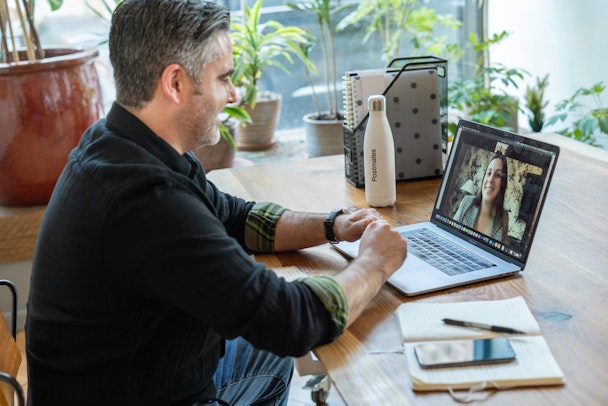No Zoom Zone: what happened when this agency called time on video conferencing?
Agencies across the industry are reimagining what work looks like. Will remote workers return? Can team cultures survive long-distance relationships? And will agency bosses keep their promises? In the wake of the pandemic, we explore the different ways agencies are evolving to meet the needs of staff and clients in a changed world.

Endless video meetings are getting in the way of ‘real work’, says Barbarian
Trouserless, low-resolution video calls are here to stay. And while that fact will cheer the shareholders of video conferencing company Zoom (and those of athleisure manufacturers), it means the attendant miseries of endless virtual meetings are also likely to stick around.
’Zoom fatigue’, the exhaustion incurred from spending hours sat in front of your webcam, is a menace. According to professor Jeremy Bailenson, founding director of the Virtual Human Interaction Lab at Stanford University, in a peer-reviewed study published in February, video conferences pile a higher ’cognitive load’ on to your brain. And there’s the effects of excessive eye contact, seeing oneself in a virtual mirror and sitting still for hours on end to contend with.
While the advertising industry in the UK and US is slowly opening up physical offices, many workers will still opt (if given the chance) to remain working from home, at least some of the time. So what can agencies do to relieve Zoom fatigue?
US shop Barbarian hit upon a simple solution to that problem last autumn: just switch it off.
As then-president Trump tested positive for Covid-19 and cases climbed further into the millions, the agency’s leadership team realized they would be working from home for the long run.
Courtney Berry, managing director at Barbarian, tells The Drum: ”We realized that we couldn’t leave it up to everyone else to figure out what would be their best way of working remotely, but that we had to start putting process and procedure in place because it was going to be the foreseeable future for all of us.”
So the agency set aside Wednesday afternoons as a block of time free from the unforgiving eye of the webcam. Staff can use it as a sacred window for creative work, knuckle down on tricky admin, or just think through a problem without being interrupted.
”Nobody has time to get any real work done because everything is over-scheduled. There’s not a lot of space for spontaneous connection or dialogue.
”’No Zoom Zone’ was a reaction to people saying, ’I don’t have more than 30 minutes collectively in order to sit down and really try to crack a brief’ or just have some uninterrupted think time.”
It’s one of several agencies to institute fenced-off time free from interruptions. In London, Adam&Eve DDB banned back-to-back calls, while Dentsu X, Publicis Health and Saatchi & Saatchi Wellness encouraged staff to arrange a day each week free from meetings.
”We have to have a certain time when people aren’t expected to be on camera, people aren’t expected to be connected. We can’t always be having meetings and talking and having conversation. Sometimes you just need to go behind a closed door.”
10 months on, with its teams planning their return, has it worked?
For Barbarian’s creatives, Berry says the policy has given them ”space for creativity”. ”They need to have collective hours of uninterrupted time in order to jam with each other.”
And client-facing teams, while still ”at the mercy” of their brand-side counterparts, have also made use of it. ”For the most part, many clients are extremely understanding, and they want to be respectful of these times as well, because they’re going through similar things.”
However, crises tend not to observe working schedules, and she admits the Wednesday cordon hasn’t been observed flawlessly. ”[But] it creates more of an awareness that you’re encroaching on something that is meant to be sacred.”
Berry notes that the agency has tried to shore up staff with other measures. It already offered unlimited paid leave (something dating app Bumble granted its workers recently) and provided an additional day and a half off on public holidays.
With its staff trickling back into its offices after Labor Day (September 7) – she estimates 50% will be in just two or three days a week – the policy will be retained. ”It’ll be a priority for us to protect some of these spaces for creativity.”

